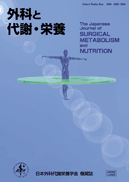Volume 56, Issue 1
Displaying 1-10 of 10 articles from this issue
- |<
- <
- 1
- >
- >|
-
2022 Volume 56 Issue 1 Pages 1-5
Published: 2022
Released on J-STAGE: March 15, 2022
Download PDF (1158K) -
2022 Volume 56 Issue 1 Pages 6-10
Published: 2022
Released on J-STAGE: March 15, 2022
Download PDF (874K) -
2022 Volume 56 Issue 1 Pages 11-15
Published: 2022
Released on J-STAGE: March 15, 2022
Download PDF (820K) -
2022 Volume 56 Issue 1 Pages 16-19
Published: 2022
Released on J-STAGE: March 15, 2022
Download PDF (857K) -
2022 Volume 56 Issue 1 Pages 20-25
Published: 2022
Released on J-STAGE: March 15, 2022
Download PDF (995K) -
2022 Volume 56 Issue 1 Pages 26-29
Published: 2022
Released on J-STAGE: March 15, 2022
Download PDF (688K)
-
2022 Volume 56 Issue 1 Pages 30-36
Published: 2022
Released on J-STAGE: March 15, 2022
Download PDF (721K)
-
2022 Volume 56 Issue 1 Pages 37-40
Published: 2022
Released on J-STAGE: March 15, 2022
Download PDF (774K)
-
2022 Volume 56 Issue 1 Pages 41-49
Published: 2022
Released on J-STAGE: March 15, 2022
Download PDF (1466K)
-
2022 Volume 56 Issue 1 Pages A56_1-
Published: 2022
Released on J-STAGE: March 15, 2022
Download PDF (657K)
- |<
- <
- 1
- >
- >|
